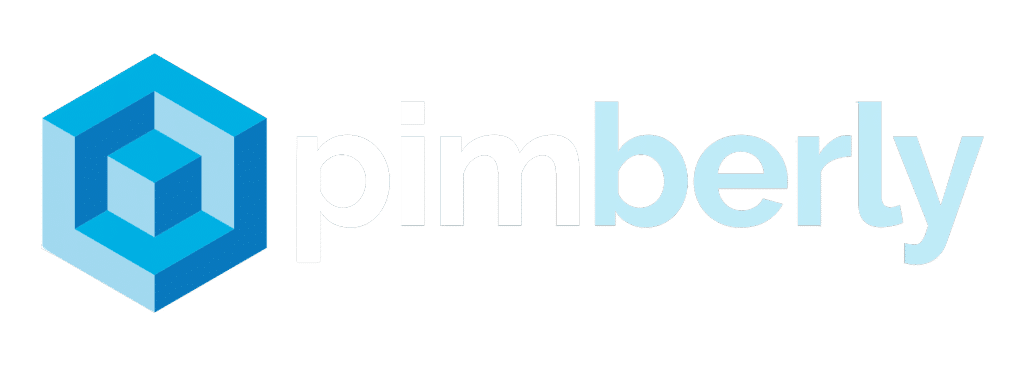What is Product Content Management (PCM)?
Product Content Management (PCM) is a system for organizing, storing, and distributing product information across multiple sales channels and marketing platforms. It enables businesses to create, manage, and update product data efficiently, ensuring consistent and accurate information is available to customers, employees, and partners.
In-Depth Explanation of Product Content Management (PCM)
Why It Matters
In the rapidly evolving eCommerce landscape, accurate and consistent product information is crucial for attracting and retaining customers. PCM ensures that all product-related content is up-to-date, comprehensive, and easily accessible across multiple touchpoints. This consistency builds trust with consumers and helps businesses maintain a competitive edge in the digital marketplace.
How It Works
PCM systems act as a central repository for all product information, allowing teams to collaborate and manage content efficiently. These systems typically integrate with other business tools, such as ERP and CRM platforms, to streamline data flow. PCM solutions enable businesses to create, edit, and distribute product content across various channels, ensuring consistency and accuracy throughout the product lifecycle.
Key Benefits
Implementing a robust PCM strategy offers several advantages for eCommerce businesses. It improves operational efficiency by reducing manual data entry and minimizing errors. PCM enhances the customer experience by providing accurate, detailed product information, which can lead to increased sales and reduced return rates. Additionally, it enables faster time-to-market for new products and facilitates easier expansion into new sales channels.
Relevant Stats or Facts
According to a study by ShotFarm, 40% of online purchases are returned due to poor product content. These statistics underscore the critical role of effective PCM in driving eCommerce success and customer satisfaction.
Importance of Product Content Management (PCM)
Product Content Management plays a crucial role in modern business operations, particularly for companies involved in e-commerce and digital retail. By implementing effective PCM strategies, businesses can streamline their product information processes, ensuring that accurate and up-to-date details are consistently available across all sales channels.
This level of organization and accuracy is essential for meeting customer expectations in an increasingly digital marketplace, where consumers rely heavily on online product information to make purchasing decisions.
For businesses handling large product catalogs or operating in multiple markets, PCM becomes even more vital. It allows companies to efficiently manage and distribute product information across various platforms, languages, and regions. This capability is particularly important for businesses expanding into new markets or launching new product lines, as it enables them to quickly adapt and localize product content to meet specific market requirements.
Additionally, PCM systems often integrate with other business tools, such as inventory management and customer relationship management software, creating a more cohesive and efficient operational ecosystem.
Furthermore, effective Product Content Management can significantly impact a company’s bottom line. By ensuring that product information is accurate, comprehensive, and easily accessible, businesses can reduce customer inquiries, minimize returns due to misinformation, and improve overall customer satisfaction.
This, in turn, can lead to increased sales, improved brand reputation, and enhanced customer loyalty. In the competitive landscape of e-commerce, where consumers have countless options at their fingertips, having well-managed and compelling product content can be the differentiating factor that sets a business apart from its competitors and drives long-term success.
Examples of Product Content Management (PCM)
Product Content Management (PCM) for Fashion/Apparel Retailer:
A large clothing retailer with both online and brick-and-mortar stores uses PCM to manage their extensive product catalog. They input detailed information about each garment, including fabric composition, care instructions, and sizing charts.
The PCM system allows them to easily update product descriptions across multiple channels, ensuring consistency between their website, mobile app, and in-store displays. This streamlined approach helps reduce errors and improves the overall shopping experience for customers.
PCM for HVAC Manufacturer:
An HVAC manufacturer utilizes PCM to organize technical specifications, installation guides, and maintenance instructions for their various heating and cooling systems. The PCM system enables them to create and maintain accurate product information that can be easily accessed by distributors, contractors, and end-users.
When the manufacturer releases a new model or updates an existing one, they can quickly update the relevant product content across all their sales channels and marketing materials, ensuring that all stakeholders have access to the most current information.
PCM for Distributor of Auto Parts:
An auto parts distributor implements PCM to manage their vast inventory of components from multiple manufacturers. The system allows them to standardize product descriptions, specifications, and compatibility information across thousands of SKUs.
By utilizing PCM, the distributor can easily search for and group related products, making it simpler for their customers to find the right parts for specific vehicle makes and models. This improved organization and searchability leads to increased customer satisfaction and fewer returns due to incorrect part purchases.
PCM for Brand Owner of Homewares Products:
A homewares brand that sells primarily through marketplaces and major retailers employs PCM to maintain consistent product information across all sales channels. They use the system to store and manage high-quality product images, detailed descriptions, and specifications for each item in their catalog.
The PCM solution allows them to easily tailor product content to meet the specific requirements of different marketplaces and retailers, such as Walmart, Lowe’s, Home Depot, and Wayfair. This ensures that their products are accurately represented on each platform, improving their visibility and sales performance.
Synonyms
Common synonyms for Product Content Management (PCM) include:
- Product Information Management (PIM)
- Product Data Management (PDM)
- Product Catalog Management
- Product Content Syndication
- Product Information Syndication
- Digital Asset Management for Products
- Product Experience Management (PXM)
- Product Content Syndication
- Product Information Syndication
- Product Data Syndication
Product Content Management (PCM) and PIM
Product Content Management (PCM) is a crucial process for businesses that sell products online or through multiple channels. It involves creating, organizing, and maintaining detailed and accurate information about products, including descriptions, specifications, images, pricing, and other relevant data. PCM helps companies ensure that their product information is consistent, up to date, and easily accessible across various platforms and sales channels.
In the context of PIM, PCM plays a vital role in managing and distributing product information efficiently. This solution allows businesses to centralize their product data in a single repository, making it easier to update and maintain.
For example, if a company sells electronics, PIM can help store and manage information such as product dimensions, technical specifications, warranty details, and high-quality images. This centralized approach ensures that all departments, from marketing to customer service, have access to the same accurate and current product information.
PIM also facilitates the process of adapting product content for different channels and markets. For instance, an apparel retailer can use the system to tailor product descriptions for various online marketplaces, each with its own requirements and character limits.
Additionally, PIM can help manage multilingual content, allowing businesses to easily translate and localize product information for international markets. This capability is particularly valuable for companies expanding their eCommerce presence globally, as it ensures consistent brand messaging and product representation across different regions and languages.
Frequently Asked Questions
How does Product Content Management differ from Product Information Management?
Product Content Management focuses specifically on creating, organizing, and distributing product-related content, such as descriptions, images, and marketing materials. Product Information Management, on the other hand, encompasses a broader scope, including technical specifications, pricing, and inventory data. PCM is often considered a subset of PIM, with a stronger emphasis on the creative and marketing aspects of product information.
What are the key benefits of implementing a Product Content Management system?
Implementing a PCM system can lead to improved efficiency in content creation and management, ensuring consistency across all sales channels. It helps streamline workflows, reduce errors, and speed up time-to-market for new products. PCM also enhances the customer experience by providing accurate and engaging product information, which can increase conversions and reduce returns. Additionally, it enables better brand control and compliance with industry regulations.
How does Product Content Management support omnichannel retail strategies?
PCM plays a crucial role in supporting omnichannel retail by centralizing product content and ensuring consistency across all channels. It allows businesses to create and manage content that can be easily adapted for various platforms, including e-commerce websites, mobile apps, social media, and in-store displays. This consistency helps provide a seamless customer experience, regardless of where and how customers interact with the brand.
What types of businesses benefit most from Product Content Management?
While PCM can benefit businesses of all sizes and industries, it is particularly valuable for companies with large product catalogs, frequent product updates, or complex product information. Retailers, manufacturers, distributors, and brands in industries such as fashion, electronics, home goods, and consumer packaged goods often see the most significant advantages from implementing PCM systems. It is also crucial for businesses with a strong eCommerce presence or those looking to expand their digital sales channels.







